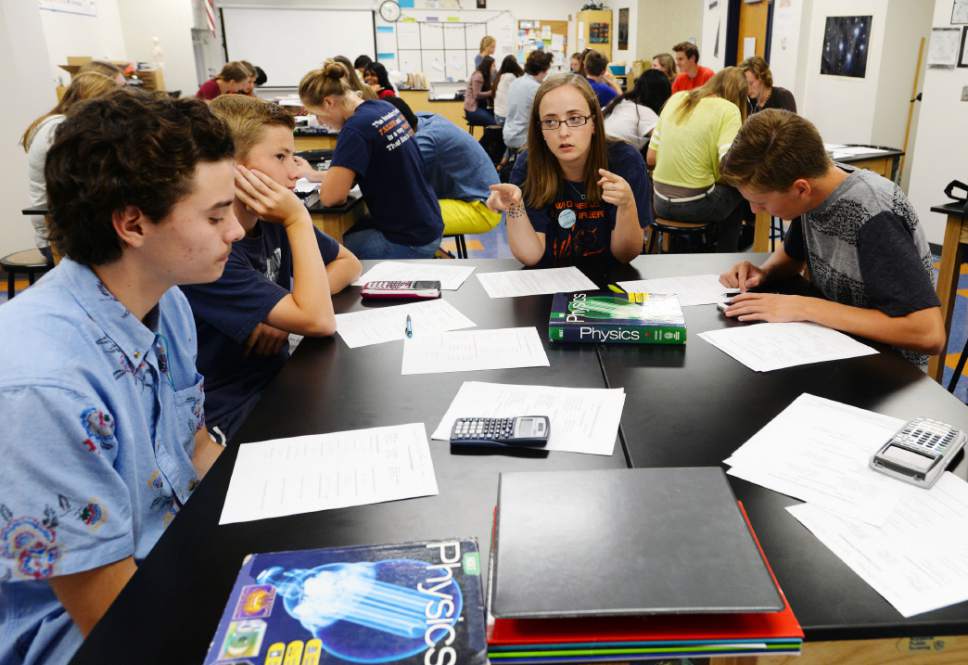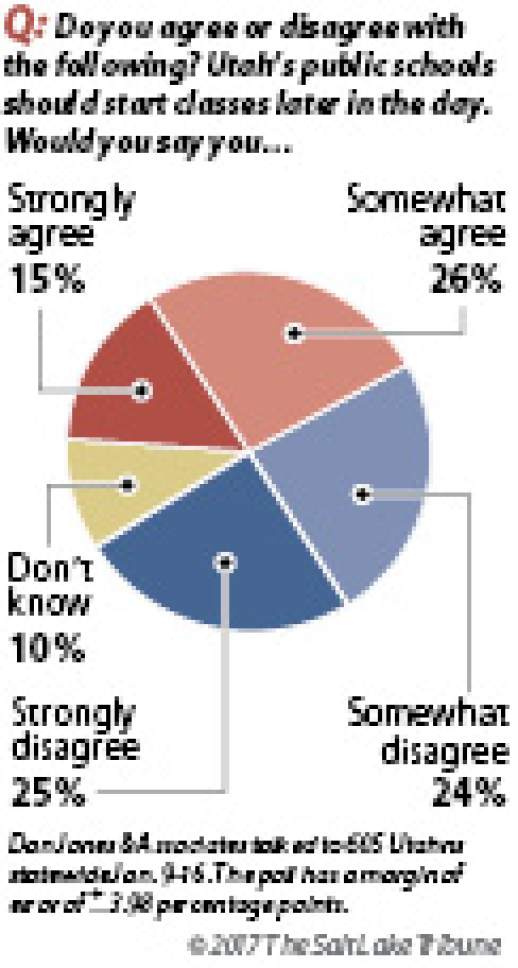This is an archived article that was published on sltrib.com in 2017, and information in the article may be outdated. It is provided only for personal research purposes and may not be reprinted.
Throughout her career as a public school teacher, state Rep. Carol Spackman Moss said the first period of the day was always the hardest.
"I didn't have problems with behavior," the Holladay Democrat said. "I had problems because kids were falling asleep."
Moss is sponsoring a resolution in this year's Utah Legislature, encouraging the state's high schools to make classes start later in the day. The measure highlights the health benefits of additional sleep for children, citing Centers for Disease Control and Prevention recommendations identifying 8:30 a.m. or later as the optimal start time for schools.
The practical reality, Moss said, is that too many schools are ringing their morning bells too early. "They'd be surprised how much better even 30 minutes would make," she said.
But a new Salt Lake Tribune/Hinckley Institute of Politics poll shows Utahns are divided on the idea of later school days.
Among the 605 registered voters who participated in the survey, 41 percent agreed that schools should start later, while 49 percent disagreed, and 10 percent said they did not know.
Voters between ages 55 and 64 were the only group in which more participants agreed with postponing the school day — 45 percent versus 42 percent who disagreed. And the party-line results mirrored each other, with 56 percent of Democrats agreeing with later start times and 56 percent of Republicans disagreeing.
The poll, conducted by Dan Jones & Associates between Jan. 9 and 16, has a margin of error of plus or minus 3.98 percentage points.
Survey participant Shawn Robison, an Eagle Mountain resident, called having an additional 30 to 45 minutes of morning sleep "helpful."
"It's difficult to get the kids up and going," Robison said. "Fighting teenagers like that is kind of like herding cats."
Salt Lake City School Board member Katherine Kennedy said efforts to shift the school day are typically tripped up by two factors: cost and scheduling.
Later start times mean later end times, Kennedy said, which can interfere with after-school activities such as sports and employment. And, in the mornings, she said, starting high schools later would likely require elementary and junior high schools to start earlier to maximize use of school districts' buses.
"That probably will have to happen in Utah," she said. "We cannot double our bus fleet. We just don't have the money."
High schools begin at 7:45 a.m. in Salt Lake City School District, with some exceptions.
Kennedy said that, due to transportation issues, unless elementary school were moved earlier, high schools might need to start more than an hour later, at 9 a.m.
"Unless we make a big investment in buses, we probably cannot start our high schools 45 minutes later."
But Kennedy also highlighted other advantages. Beyond health effects from better sleep, later starts would mean fewer high school students driving in early-morning hours, and less time unsupervised in the afternoon while their parents are at work.
The Salt Lake City district recently conducted a online survey of parents, with most supporting a later high school schedule, Kennedy said.
"It's just a no-brainer," she said. "We really should do late starts."
Moss said the challenges around school schedules are part of why she proposed the idea as a nonbinding resolution instead of a bill to require 8:30 a.m. start times.
"Local districts," she said, "need to make those decisions."
Twitter: @bjaminwood





